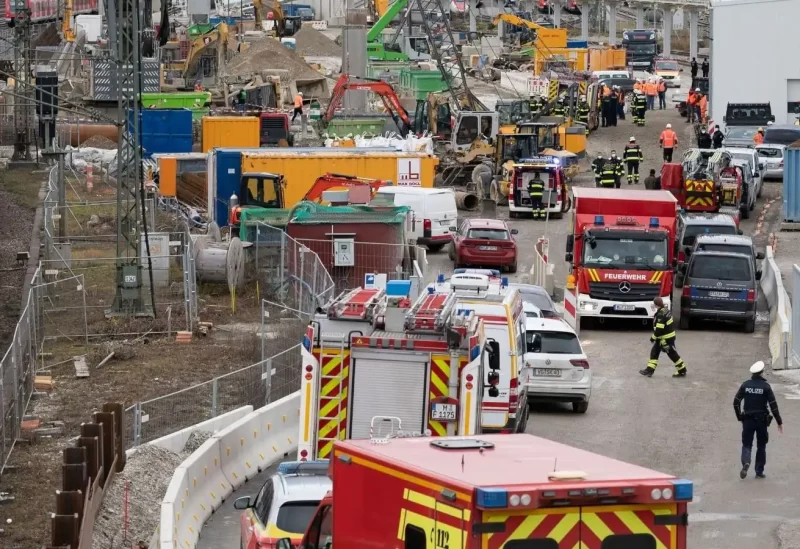
An ancient aircraft bomb detonated on a bridge near Munich’s crowded main train station on Wednesday, injuring four persons, police announced on Twitter, increasing the number of injured from three earlier.
According to the Munich fire department, one of the persons was critically hurt.
Every year, more than 2,000 tonnes of live bombs and ammunition are unearthed in Germany, more than 70 years after World War II ended.
British and American bombers dropped 1.5 million tonnes of bombs on the nation, killing 600,000 people. Officials believe that 15% of the explosives did not explode, and that some of them were buried six meters (20 feet) deep in the earth.
The explosion happened as the site was being drilled to build a tunnel, police said, adding the area had been cordoned off.
“There is no danger outside this area,” police said.
Explosives experts were summoned to the site to examine the remains of the bomb, the fire brigade said.
Due to the blast, rail travel to and from the main train station was suspended, according to rail operator Deutsche Bahn. It was not clear when rail traffic would resume.
World War Two bombs are regularly discovered during construction work in Germany and are usually defused by experts or destroyed in controlled explosions. However, there have been cases of deadly blasts in the past.
Three police explosives experts in Goettingen were killed in 2010 while preparing to defuse a 1,000-pound bomb, and in 2014 a construction worker in Euskirchen was killed when his power shovel struck a buried 4,000-pound bomb. In 1994, three Berlin construction workers were killed in a similar accident.
In 2012, a fireball lit up the sky in Munich, causing millions of euros of damage to 17 buildings, when authorities had to detonate a deteriorated 500-pound bomb. In 2015, a 1,000-pound bomb ripped a three-meter-deep hole in a motorway near Offenbach in central Germany.